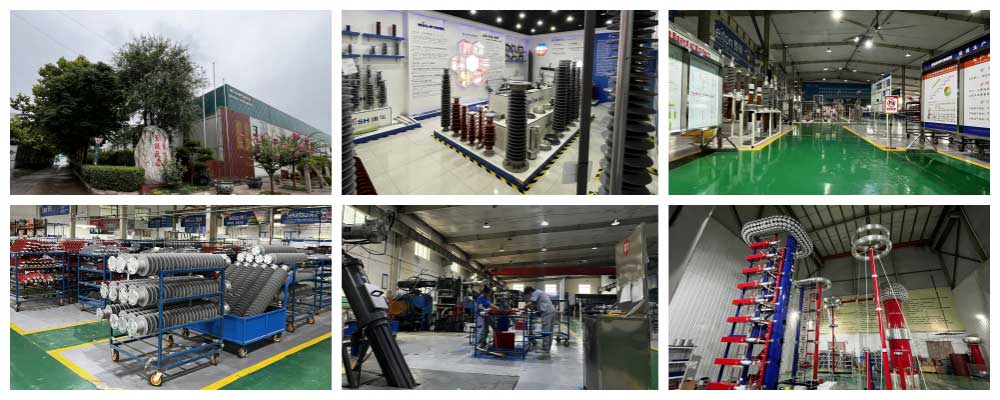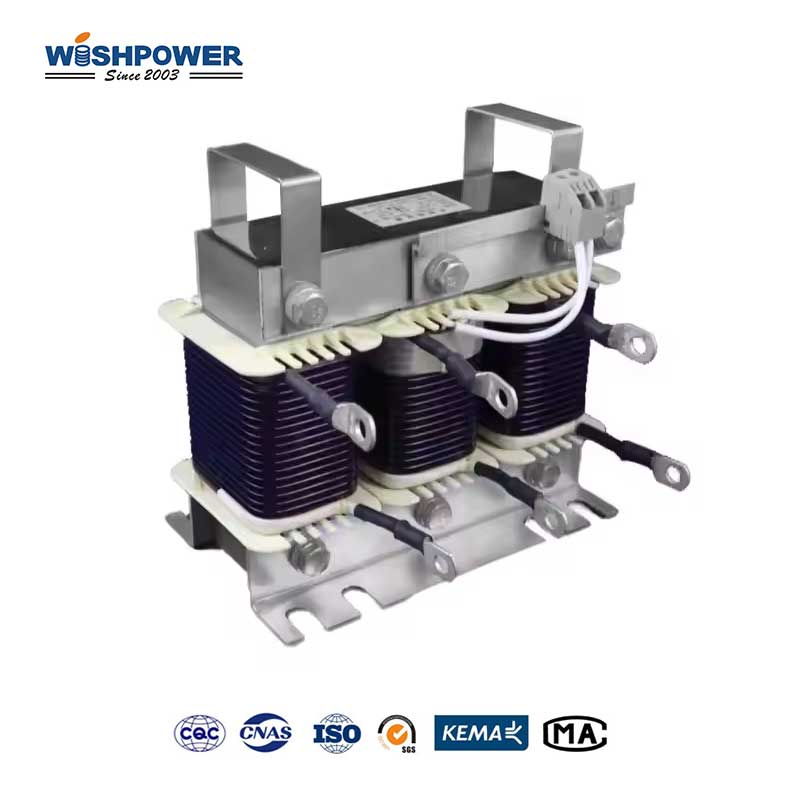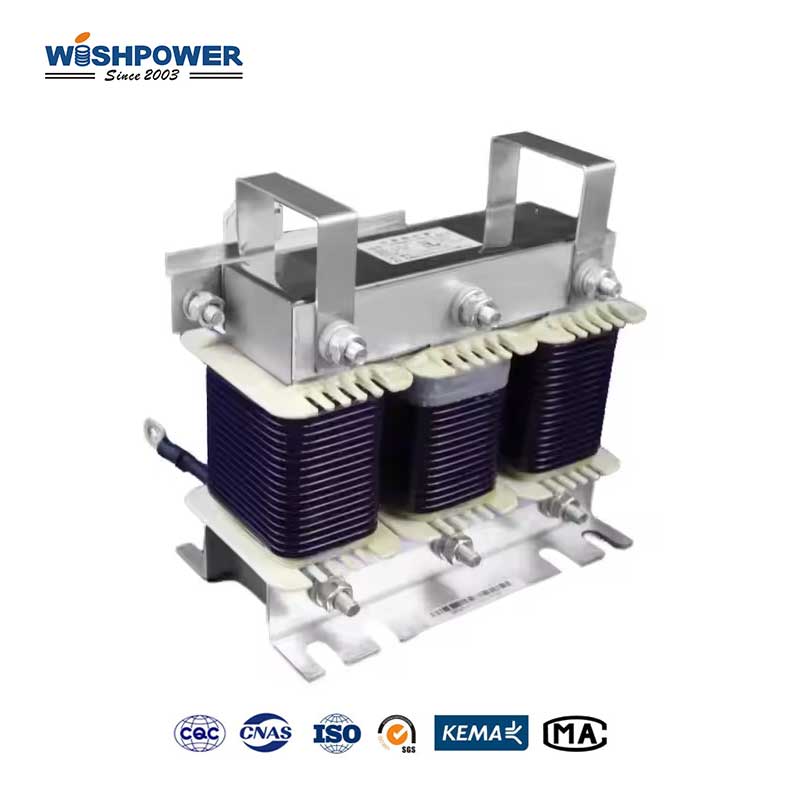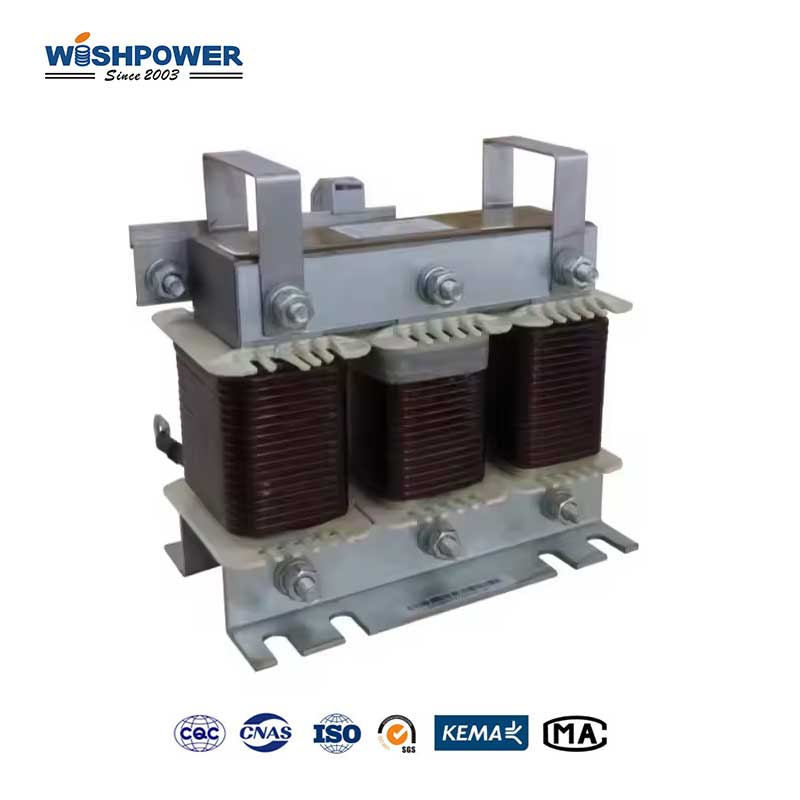Specification
| Series reactor type for low voltage capacitors |
5.6/0.45-7% |
| Matching Capacitor Capacity(kVar) |
80 |
| Reactor Capacity |
(kVar) |
5.6 |
| Overall Dimensions L×W×H(mm) |
260*210*245 |
| Installation Dimensions A×B |
135*125-12 |
The table above is just one of our product parameters. If you want more information, please get in touch with info@wishpower.net
What is Series Reactor?
The series reactor is an electric device, which limits or controls current flow in a power system through insertion along series with other components. The main function of a chopper is to limit short circuit currents or in—rush currents upon energizing equipment like a transformer. The reactor adds inductive reactance to the circuit, which acts to protect the system from excessive current which would cause damage to equipment or upset system operations. It is used broadly in high-voltage power transmission and distribution systems to improve power quality by reducing harmonic distortion, controlling voltage deviations, and serving as a load current stabilizer. They are also used in some cases to enhance protection system coordination because they act to keep short-circuit currents within the capabilities of breaker and relay. These reactors are intended to deal with the mechanical and thermal stresses generated by high currents and operate highly reliably under demanding conditions.

Features
- Current Limiting:
The reactor is built with special features to limit system short-circuit currents. They are unlike shunt reactors that are used for absorption of reactive power and regulation of voltage levels.
- Improved Fault Protection:
With impedance, it reduces the magnitude of fault currents and improves coordination between fault current-limiting circuit breakers, protective relays, and protection techniques.
- Voltage Stabilization:
Rather than focusing on moments of heavy load or sudden changes in system conditions like other types of reactors, this type of reactor helps to stabilize voltage fluctuations.
- Harmonic Reduction:
Also, they can often reduce harmonic distortion in power systems where they are used in conjunction with capacitor banks and other equipment that generates harmonic currents.
- Energy Dissipation:
Unlike some other reactors, a portion of the energy is dissipated as part of their function and mitigates the potential damage from transient currents or switching surges in the system.
Benefits
- Enhanced System Protection:
By limiting fault currents, the dry-type reactor protects electrical equipment, minimizing the hazard of transformer, generator, and other equipment from short-circuit incidents.
- Improved Power Quality:
It helps reduce inrush currents, and harmonics, thus reducing disturbances on the network.
- Extended Equipment Lifespan:
Controlled reduction in current flow enables overheating and excessive wear on equipment to be avoided and extends the operational life of critical infrastructure components.
- Cost-Effective System Management:
It allows unused protection devices to be utilized more efficiently and at lower costs by keeping fault currents within reasonable envelopes.
- Better Load Distribution:
They help balance and stabilize load currents in the system to smooth the power delivery which is an important issue in high-demand environments.
Application
- Current Limiting in Power Distribution:
They are used in electrical distribution networks to limit short circuit currents on downstream systems such as transformers, switchgear, and circuit breakers to protect them against damage.
- Transformer Protection:
The capability to generate a series of pulses to control the inrush currents when transformers are energized so that the amount of inrush current, and related current spikes, is limited to prevent damage to the transformer or system instability.
- Harmonic Filtering:
It works with capacitor banks to attenuate harmonics that industrial systems run into with nonlinear loads such as drives and rectifiers generating harmonics.
- Reactive Power Compensation:
It is often installed as part of capacitor bank installations, shunting voltage fluctuations and helping to regulate overall voltage in high-voltage power systems.
- Motor Starting Circuits:
In motor starting applications to reduce the inrush current in starting very large motors to protect the motor and the electrical system, they are employed.
- High-Voltage Transmission Lines:
High voltage power transmission system relies on the series reactor in transmission line for providing power balance, voltage levels stabilization, and overall system stability.
Certificate

Factory

Hot Tags: Series Reactor, Reactor, Thailand, manufacturers, ISO factory, wholesale, KEMA, high quantity, best, price, low to high voltage











